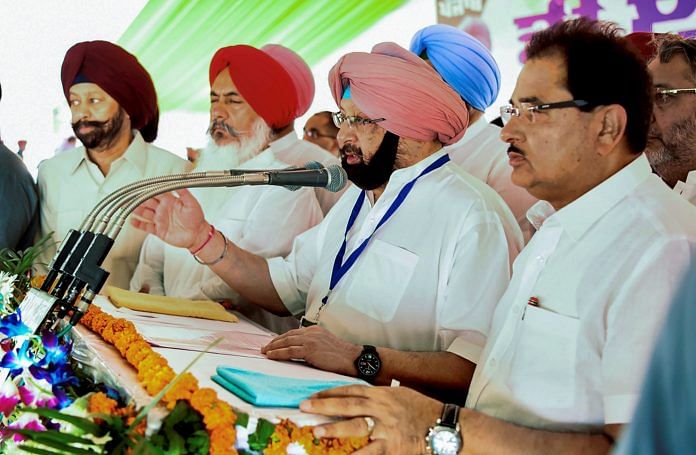After considering the Haryana version of the act, Punjab has rejected it, and decided to implement it universally — on all private hospitals and clinics in the state.
Chandigarh: The Punjab government has decided not to follow Haryana in implementing what Punjab considers a ‘watered down’ version of the Clinical Establishments (Registration and Regulation) Act.
In January this year, while adopting the central legislation that aims to regulate private hospital and clinics in the country, Haryana had decided that hospitals and clinics with less than 50 beds will not be covered under the act. However, after considering the Haryana version of the act, Punjab has rejected it, and decided to implement it universally — on all private hospitals and clinics in the state.
The government of India had brought in the act in 2010 (notified in 2012) to reign in private corporate hospitals as also mid sized and small clinics operating in commercial and residential areas. In wake of the Fortis episode in November last year, the union health ministry urged all the states and union territories to adopt and implement the act which provides for registration and regulation of all clinical establishments while prescribing minimum standards of facilities and services to be provided by them.
The Haryana assembly had, in 2014, passed the state’s version of the central act. However despite the passage of four years, the rules under the 2014 act could not be framed by the department of health. The main reason for the delay in framing of the rules under the act was the unending deliberations between the government and representatives of the state chapter of the Indian Medical Association (IMA).
The IMA raised almost 70 objections to the act and finally after several meetings, the two seemed to have arrived at a consensus last year. However within weeks of the new rules having been notified, the government decided to implement the central act in toto along with its rules—Clinical Establishments (Central Government) Rules 2012—with only one change: the smaller clinics and hospitals which have less than 50 beds will not be covered by it.
This decision of the Haryana government was first brought in as an ordinance in January and later passed by the state assembly during the budget session in March. More than 150 corporate and big multi-speciality hospitals will be covered under the act. The act provides for these hospitals to be registered with the government within one year from the date of implementation of the act.
During Punjab’s budget session later that month health minister Brahm Mohindra announced that Punjab will also bring in the Clinical Establishments Act. Following up on his announcement, the minister held a meeting with the various stakeholders including private doctors last month.
“Haryana’s version of the act was discussed during the meeting. In fact it was suggested that in Punjab too adopt the central act but apply it only to bigger hospitals,” said the minister. “However, I believe that Haryana’s version of the act is watered down as it leaves out a large number of smaller players who need to be regulated as much as the bigger hospitals. We rejected the Haryana model and have decided that whatever is brought in will be applicable to all private hospitals and clinics,” added Mohindra.
“A major part of private health care service in Punjab is provided by smaller and mid-size clinics and hospitals run privately by individual doctors. The larger private players are only a handful and also unaffordable. There is no logic in bringing in a handful of hospitals under the regulatory framework and leave out the majority,” argued Mohindra adding that a new version of the act will be worked out in the next meeting of the stakeholders to be held shortly.
However, stakeholders in Punjab argue that Haryana’s move to bring in an act that initially applies only to the larger hospitals is a more “practical” approach for the following reasons:
1. It allows the state to bring in the act without much opposition from the various bodies of medical practitioners. And the act can always be modified later to include all hospitals.
2. Since the act provides for hiring trained medical and paramedical staff by private hospitals, its implementation across the board can lead to an acute shortage of such staff, generating a vacuum affecting government health services.
3. The act provides for a digital registration process which will last one year and gives another two years for the registered hospitals to adopt the prescribed the minimum standards of facilities and services (yet to be finalized) listed under the act. Since this means at least three years, the earlier some hospital come under its ambit, the better it would be.
4. The need to regulate the functioning of corporate hospitals is more than smaller establishments as large corporate hospitals are largely independent and unaccountable. The smaller hospitals running in residential or commercial areas on the other hand are accountable to resident welfare associations, to their immediate competitors, the district medical negligence committees etc.



